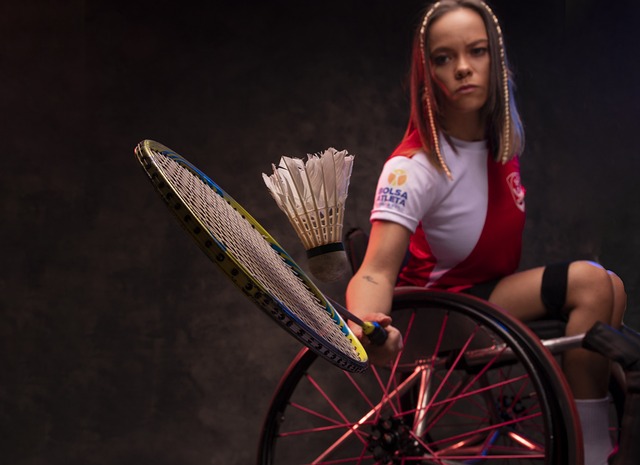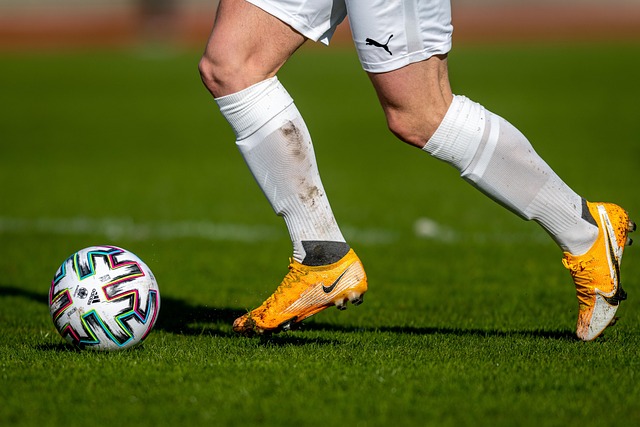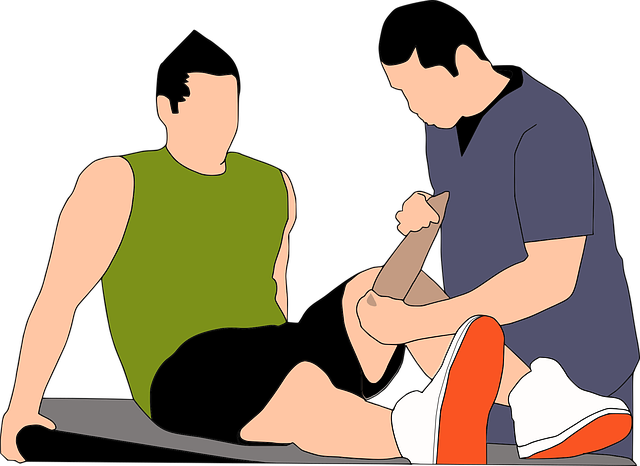Athletic recovery goes beyond temporary pain relief, focusing on addressing root causes of wear and tear through holistic regenerative approaches combining massage, functional movement, nutrition, and mindfulness. Proper nutrition and hydration optimize physical repair, while active recovery practices like yoga enhance mobility, circulation, and joint health. Mental resilience through mindfulness builds stress management and focus, and adequate rest & sleep restore energy levels, reduce inflammation, and mentally prepare athletes for peak performance.
In the pursuit of peak athletic performance, understanding holistic regenerative approaches is essential. This comprehensive guide explores various aspects of athletic recovery, from nutrition and hydration as fuel for repair to movement, mental resilience, and rest. By integrating these holistic strategies, athletes can unlock their full potential, enhancing not just physical capabilities but also overall well-being. Discover how a multifaceted approach to athletic recovery can revolutionize your performance and foster long-term success.
- Understanding Athletic Recovery: The Foundation of Holistic Regeneration
- Nutrition and Hydration: Fueling the Body for Optimal Repair
- Movement and Mobility: Unlocking the Potential of Active Recovery
- Mental Resilience: Embracing Mindfulness and Stress Reduction Techniques
- Rest and Sleep: The Ultimate Pillars of Athletic Regeneration
Understanding Athletic Recovery: The Foundation of Holistic Regeneration

Understanding Athletic Recovery is the cornerstone of holistic regenerative approaches for athletes. Traditional methods often focus on quick fixes and symptom relief, but true regeneration goes beyond immediate pain alleviation. It involves addressing the underlying causes of athletic wear and tear, such as chronic inflammation, muscle imbalances, and metabolic fatigue. By integrating various disciplines like massage therapy, functional movement training, proper nutrition, and mindfulness practices, athletes can achieve deeper recovery.
Holistic regenerative approaches view the body as a complex system where every component is interconnected. For instance, improving sleep quality can significantly impact muscle repair and hormone regulation, while reducing stress levels through mindfulness techniques enhances overall resilience. These methods encourage athletes to listen to their bodies, foster a balanced lifestyle, and cultivate a long-term mindset that prioritizes well-being over fleeting performance gains.
Nutrition and Hydration: Fueling the Body for Optimal Repair

Proper nutrition and hydration are fundamental components of holistic regenerative approaches for athletes, playing a crucial role in optimizing physical repair and enhancing athletic recovery. A balanced diet rich in whole foods, lean proteins, complex carbohydrates, and essential fats provides the body with the necessary building blocks to rebuild and regenerate muscle tissue, supporting overall health and performance. Adequate hydration levels are equally vital, as water is essential for transporting nutrients, removing waste products, and maintaining optimal body function during intense training sessions.
By focusing on nutrient-dense foods and staying well-hydrated, athletes can promote efficient cellular repair processes, reduce inflammation, and accelerate recovery times between workouts. This holistic approach to nutrition and hydration not only enhances athletic performance but also contributes to long-term health and longevity in sport, ensuring that the body is fueled and supported for peak physical potential.
Movement and Mobility: Unlocking the Potential of Active Recovery

In holistic regenerative approaches, focusing on movement and mobility is a powerful tool for athletes looking to enhance their athletic recovery. Active recovery, through strategic movement practices like yoga, pilates, or low-impact exercises, goes beyond rest by promoting blood flow and lymphatic circulation. This facilitates the removal of metabolic waste products and toxins from muscles, reducing inflammation and speeding up recovery times between intense training sessions.
By prioritizing mobility work, athletes can improve their range of motion, enhance joint health, and prevent injuries. These practices not only support physical recovery but also mentally rejuvenate athletes, fostering a sense of balance and resilience. Incorporating movement into active recovery routines allows for a more holistic and effective athletic rehabilitation process, ultimately contributing to improved performance and longevity in sport.
Mental Resilience: Embracing Mindfulness and Stress Reduction Techniques

Mental resilience is a cornerstone of holistic athletic recovery, and mindfulness practices play a pivotal role in cultivating this strength. Athletes often face intense mental challenges, from high-pressure competitions to demanding training regimens. Incorporating mindfulness techniques such as meditation, deep breathing exercises, and focused attention can significantly enhance an athlete’s ability to manage stress, overcome adversity, and maintain a clear, calm mind during critical moments.
By embracing these practices, athletes learn to detach themselves from negative thought patterns and develop a deeper sense of self-awareness. This mental fortitude enables them to bounce back more effectively from setbacks, injuries, or defeats, ensuring they remain focused, motivated, and prepared for the next challenge. Stress reduction techniques further complement athletic recovery by minimizing the physical toll that mental strain can impose, thereby optimizing performance and overall well-being.
Rest and Sleep: The Ultimate Pillars of Athletic Regeneration

Rest and sleep are fundamental aspects of holistic athletic regeneration, often overlooked but immensely powerful tools for athletes to enhance their performance and well-being. During rest, the body initiates a complex series of processes that repair and rebuild muscle tissue, while sleep further optimizes this recovery by boosting hormone release, including growth hormones responsible for cell regeneration and protein synthesis.
Adequate rest and sleep periods allow athletes’ bodies to restore energy levels, reduce inflammation, and enhance cognitive function. This holistic approach ensures athletes not only physically recover but also mentally prepare for the demands of their sport. By prioritizing these pillars, athletes can improve their overall athletic recovery, leading to better performance and a faster return to competition after intense training sessions or competitions.
Holistic regenerative approaches, encompassing proper nutrition, hydration, movement, mental resilience, and adequate rest, offer athletes a comprehensive strategy for optimal athletic recovery. By integrating these strategies into their routines, athletes can enhance performance, reduce injury risks, and achieve long-term success. Embracing holistic regeneration is not just a trend but a necessary evolution in sports science, empowering athletes to reach their full potential while nurturing their minds, bodies, and spirits.
